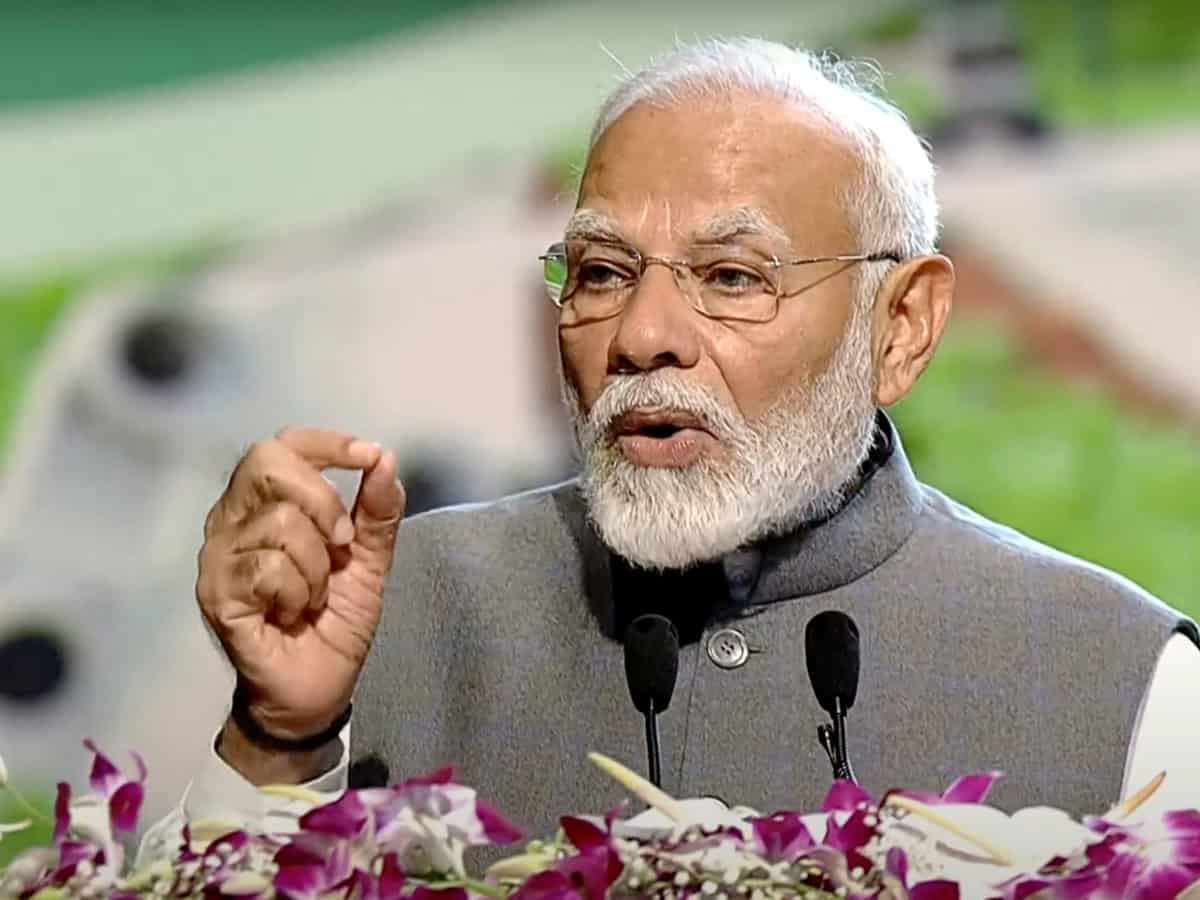
New Delhi: Prime Minister Narendra Modi said on Saturday that India has become a food surplus country and is working to provide solutions for global food and nutritional security.
Addressing a gathering after inaugurating the 32nd International Conference of Agricultural Economists (ICAE), which is being organised in India after 65 years, the Prime Minister also said the Union Budget 2024-25 focuses on sustainable agriculture.
Note that the last time the conference was hosted here, India had just achieved independence, and it was a challenging time for the country’s agriculture and food security.
“Now, India is a food surplus country,” he said, adding that the country is the number one producer of milk, pulses and spices in the world.
Also, the country has become the second-largest producer of foodgrains, fruits, vegetables, cotton, sugar and tea.
“There was a time when India’s food security was a concern for the world. Now, India is working to provide solutions for global food security and global nutritional security,” he said at the conference, attended by about 1,000 delegates from around 70 countries.
The triennial conference, organised by the International Association of Agricultural Economists, is being held from August 2 to 7.
The theme for this year’s conference is “Transformation Towards Sustainable Agri-Food Systems”.
The Prime Minister also said India has provided 1,900 new climate-resilient varieties of crops in the last 10 years.
India is promoting chemical-free natural farming, he added.
He said the country is moving towards achieving the 20 per cent ethanol blending target in petrol.
The conference will highlight India’s proactive approach to global agricultural challenges and showcase the nation’s advancements in agricultural research and policy.
The event will provide a platform for young researchers and leading professionals to present their work and network with global peers.
It aims to strengthen partnerships between research institutes and universities, influence policymaking on both national and global scales, and showcase India’s agricultural progress, including advancements in digital agriculture and sustainable agri-food systems.



